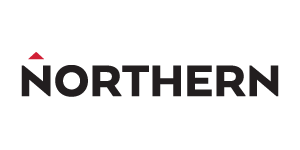
Albany Law School
Drupal, Acquia Cloud Platform, Acquia Site Studio

page load time
reduction in page size
The Client
Founded in 1851, Albany Law School is a private law school in Albany, New York.
The Situation
To convert prospective students into applicants and registrants, Albany Law School needed a new digital experience that would support students through the three phases of their decision-making process: exploration, validation and execution. The new site needed to promote the school’s brand with updated, cohesive positioning throughout and present a unified user experience across their subsites for their centers.
The Challenge
Albany Law School needed to ensure its technological resources supported its strategic objectives and positioned it competitively against other law schools. The school’s goals — to attract and retain a talented and diverse pool of new students and provide a modern digital experience that reflected Albany’s dynamic educational environment and transparent culture — meant that Albany's web team needed an efficient, collaborative environment.
But the school’s legacy website was built in an outdated Sharepoint environment, and the site design and structure didn't effectively meet the needs of their primary audience. Additionally, the site was difficult to navigate; site metrics indicated that users had trouble finding what they needed.
From an internal perspective, outdated functionality pieced together across multiple integrations meant it was difficult for staff to manage content flexibly. Because of this, responsibility for the legacy site fell solely on the shoulders of a single content editor responsible for a vast amount of content. Albany wanted to be able to add new content editors from each of their independent centers, empowering them to become responsible for their own content while using templates and themed components to maintain school branding.
Legacy site content also faced issues; it was bloated and filled with outdated, irrelevant content that did not serve Albany's key audiences. Metrics indicated that users who arrived at the site through search engines were especially confused, and limited site search was less than ideal.
Overall, Albany’s web team wanted to ensure that the site content reflected the school’s brand, highlighted its key differentiators and was easy for prospective students to follow.
The Solution
Albany’s web team turned to digital partner Northern Commerce to help lead the school’s transformation. Northern began by conducting multiple discovery sessions with internal stakeholders, gathering an understanding of their experiences with the legacy website and identifying their needs for the new site. Based on these sessions, Northern discovered that the legacy Albany Law website wasn’t effectively aligned toward the needs of its target audience, meaning the site was missing the mark when it came to helping prospective students explore and take action.
With a larger goal of getting more student applications, Northern recommended a more refined content presentation. By embracing a more refined focus and targeting critical messaging and information architecture patterns, the site provided a superior-quality user experience for prospective students while still supporting the needs and goals of other audiences. Working with Northern, Albany’s web team reimagined web content in a new site architecture, simplifying users' journeys and helping validate their decision to apply to Albany Law School programs.
The departure of a key stakeholder midway through the development phase jeopardized the project timeline. Northern was able to mitigate disruptions by quickly onboarding the substitute team member and shifting content priorities to allow time for the new internal team member to review. Change management was critical to the new site's success, as competing priorities with multiple stakeholders required careful consideration and balancing to ensure all parties were happy with the finished project.
With the implementation of Acquia Site Studio, all Albany sites now use the most updated brand elements, allowing the school’s positioning and key differentiators to shine. Site Studio’s drag-and-drop interface means that Albany’s internal team will be able to develop future pages without the need for external development assistance. Using the visual page builder, content editors can see what they're building and build more quickly without needing to code.
By using Groups for internal user roles and permissions, each department is now empowered to make changes to only their own content — this means that everyone can share in the responsibility for site updates, taking pressure off the site administrator.
To complement the new site architecture and to help ensure that users find the information they need, Northern implemented a SOLR faceted site search via Azure. The main site search breaks down results into categories, with an option to see all results without categorization. The new site was built with accessible design best practices and is fully ADA and WCAG 2.0 AA standard compliant.
In addition, the site’s new course directory pulls course content into the website, allowing for automatic updates. This means that content managers only need to change course information in one location for it to be updated across the site. And single-sign-on access via Azure allows students and staff to remain logged in across all Albany properties, creating a smoother user experience.
The Results
Albany’s overall performance grade has improved. Success metrics include:
- Page load time has decreased from 3.72 seconds to 1.43 seconds.
- Page size was reduced from 6.7 MB to 3.1 MB.
- Browser requests have dropped from 146 to 109.
